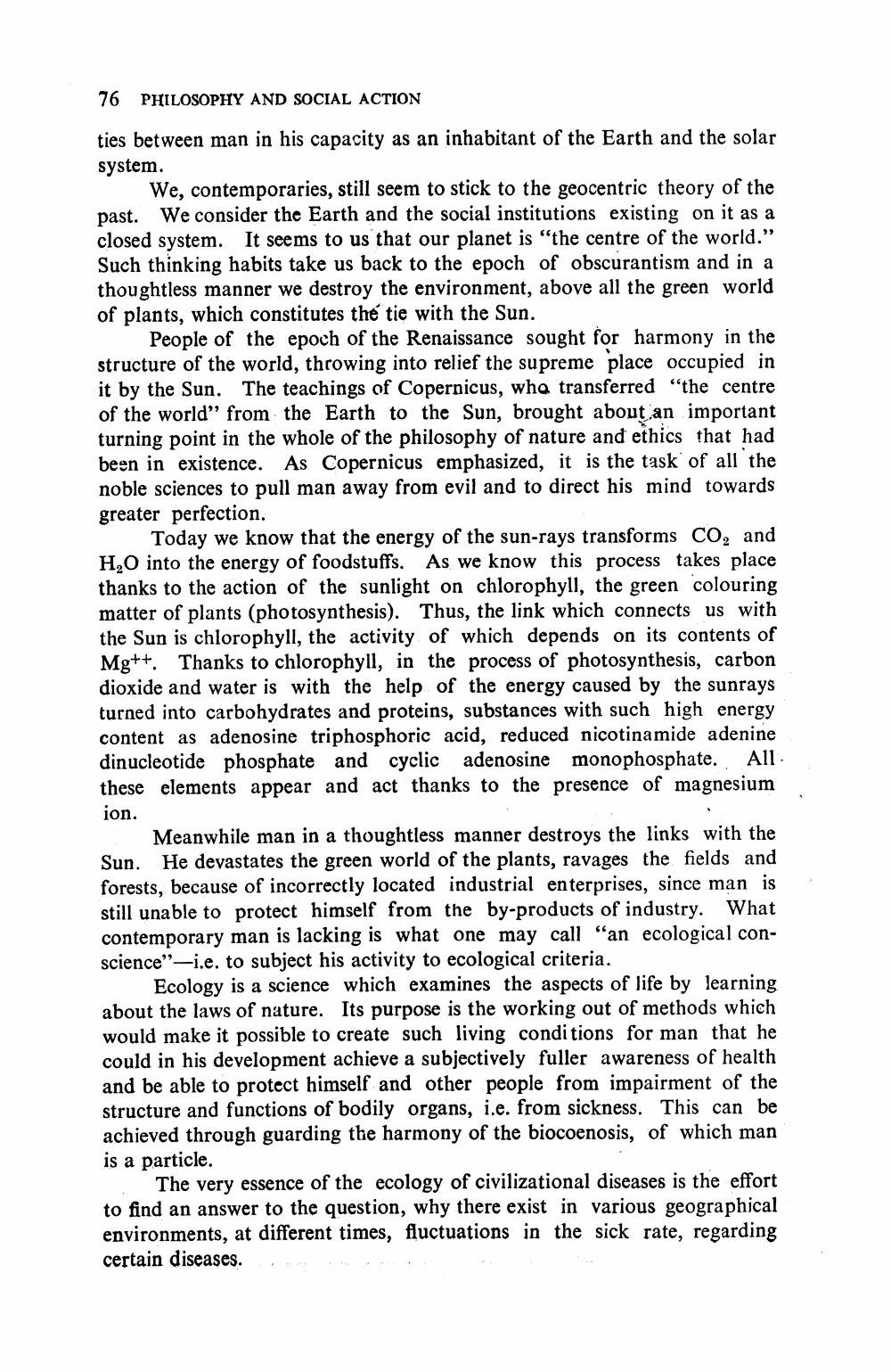Book Title: Environmental Medicine And Philosophy Of Environmental Pprotection Author(s): Julian Aleksandrowicz Publisher: Julian Aleksandrowicz View full book textPage 4
________________ 76 PHILOSOPHY AND SOCIAL ACTION ties between man in his capacity as an inhabitant of the Earth and the solar system. We, contemporaries, still seem to stick to the geocentric theory of the past. We consider the Earth and the social institutions existing on it as a closed system. It seems to us that our planet is "the centre of the world.” Such thinking habits take us back to the epoch of obscurantism and in a thoughtless manner we destroy the environment, above all the green world of plants, which constitutes the tie with the Sun. People of the epoch of the Renaissance sought for harmony in the structure of the world, throwing into relief the supreme place occupied in it by the Sun. The teachings of Copernicus, who transferred "the centre of the world” from the Earth to the Sun, brought about an important turning point in the whole of the philosophy of nature and ethics that had been in existence. As Copernicus emphasized, it is the task of all the noble sciences to pull man away from evil and to direct his mind towards greater perfection. Today we know that the energy of the sun-rays transforms Co, and H2O into the energy of foodstuffs. As we know this process takes place thanks to the action of the sunlight on chlorophyll, the green colouring matter of plants (photosynthesis). Thus, the link which connects us with the Sun is chlorophyll, the activity of which depends on its contents of Mg++. Thanks to chlorophyll, in the process of photosynthesis, carbon dioxide and water is with the help of the energy caused by the sunrays turned into carbohydrates and proteins, substances with such high energy content as adenosine triphosphoric acid, reduced nicotinamide adenine dinucleotide phosphate and cyclic adenosine monophosphate. All these elements appear and act thanks to the presence of magnesium ion. Meanwhile man in a thoughtless manner destroys the links with the Sun. He devastates the green world of the plants, ravages the fields and forests, because of incorrectly located industrial enterprises, since man is still unable to protect himself from the by-products of industry. What contemporary man is lacking is what one may call "an ecological conscience”-i.e. to subject his activity to ecological criteria. Ecology is a science which examines the aspects of life by learning about the laws of nature. Its purpose is the working out of methods which would make it possible to create such living conditions for man that he could in his development achieve a subjectively fuller awareness of health and be able to protect himself and other people from impairment of the structure and functions of bodily organs, i.e. from sickness. This can be achieved through guarding the harmony of the biocoenosis, of which man is a particle. The very essence of the ecology of civilizational diseases is the effort to find an answer to the question, why there exist in various geographical environments, at different times, fluctuations in the sick rate, regarding certain diseases.Page Navigation
1 2 3 4 5 6 7 8
